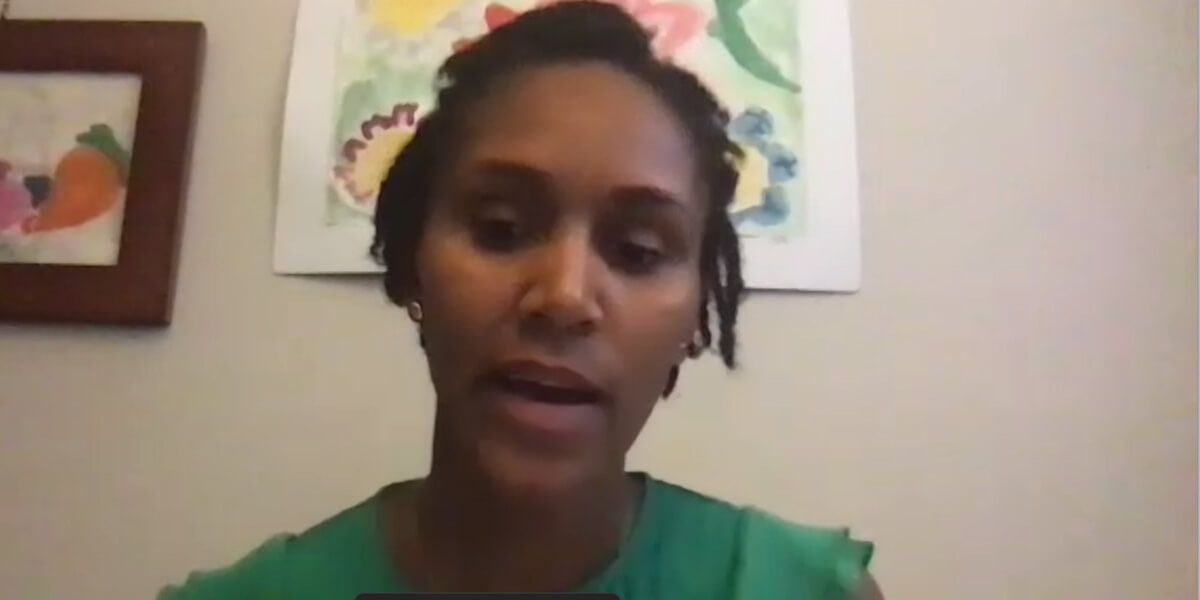On the first Monday morning after the last official day of school, Colorado Academy students might have considered starting their Summer vacation by sleeping in. Instead, on June 8, students from Upper School and Middle School attended one-hour divisional Courageous Conversation meetings via Zoom to discuss their thoughts about systemic racism, Black Lives Matter protests around the world, and the deaths of George Floyd, Ahmaud Arbery, Breonna Taylor, and others.
Led by CA’s Director of Inclusivity Sarah Wright, the conversations also included many CA faculty and staff members. Wright directed the discussions with clear and careful questions: “How are you feeling? What do you need? What do you know about what is happening? How do you feel about the protests?” She also had students, faculty, and staff enter Zoom breakout rooms to talk in small groups.
Throughout their time together, people listened carefully, as group members shared their thoughts and observations.
Thoughts and observations
“When you see so many people who care about the same cause around the world, you feel like you are not alone.”
“I feel disappointed about how the media is covering the protests. They are not all violent, and by portraying them that way, they miss the point. These are peaceful protests, and they are very powerful.”
“The amount of information is sometimes overwhelming.”
“I’m grateful to have family discussions about these issues, because it gives me more informatio“I am getting a better understanding of the role of police unions.”
“Hearing different people talk about these topics helps me better understand the issues.”
“This is also LGBTQ Pride Month. More than any other time, people seem to want to be involved. There are so many real-life issues coming up, issues that we have not had to navigate before this.
“Latin communities are also included in this movement. Reforms will benefit them too.”
“Teenagers are often told we are overreacting. These protests show that it’s important that we are heard by the adults in our lives.”
Questions
The students also posed very tough questions for the group to consider.
“Systemic racism has been going on for decades. Why did it take phone video for action to finally happen?”
“Is protesting right? Should the police be defunded?”
“Many unjustified killings of minorities are not reported at the time they happen. Silence is complicity. Why is it the media do not report all these deaths?”
“Do people see something of themselves in Amy Cooper in Central Park? This was not a case of police brutality—it was something much deeper.”
“I’m concerned about protesting during COVID-19. Is there a way to make my voice heard safely?”
“This is about something bigger than police issues. What are our values as a society? Are they aligned with violence or non-violence?”
“These people’s deaths should not be just another statistic. Their lives mattered. What if this had been my mom, my dad, my cousin?”
Why is racism difficult to discuss?
In the second part of meetings with both the Upper School and Middle School, Wright asked her own tough question: “Why are race and racism so difficult to discuss?”
Here students referred back to discussions they had had in classes at CA. One student mentioned her class talking about the fear that people have that they might say something wrong. “That’s why people are unwilling to speak,” she said. “But in class we learned it’s okay to talk, and we also learned how to apologize if we are insensitive.”
Other CA students shared their experiences in classes where they had studied the history of slavery and discussed the presence of systemic racism in today’s society. Another referenced his study of To Kill a Mockingbird.
It was clear that, in recent weeks, students had been reading on the topic of race. Individual students shared articles they liked. Some members of the group had also read Wright’s recent blog “Two different Americas.”
“We are all learning together,” Wright said. “We should not hold back talking about these issues out of fear.”
She reassured students by echoing the Kendrick Lamar song “We’re going to be alright,” and by sharing this quote from Ijeoma Oluo, the author of the New York Times best-seller So You Want To Talk About Race.
“The beauty of anti-racism is that you don’t have to pretend to be free of racism to be an anti-racist. Anti-racism is the commitment to fight racism wherever you find it, including in yourself. And it’s the only way forward.”
Head of School Dr. Mike Davis ended the meetings by thanking the students who attended. “This helps me in my work,” he said. “We are at an inflection point for the country. How do we work together to change a new reality? That is why we work in education—because we want to save the world.”
